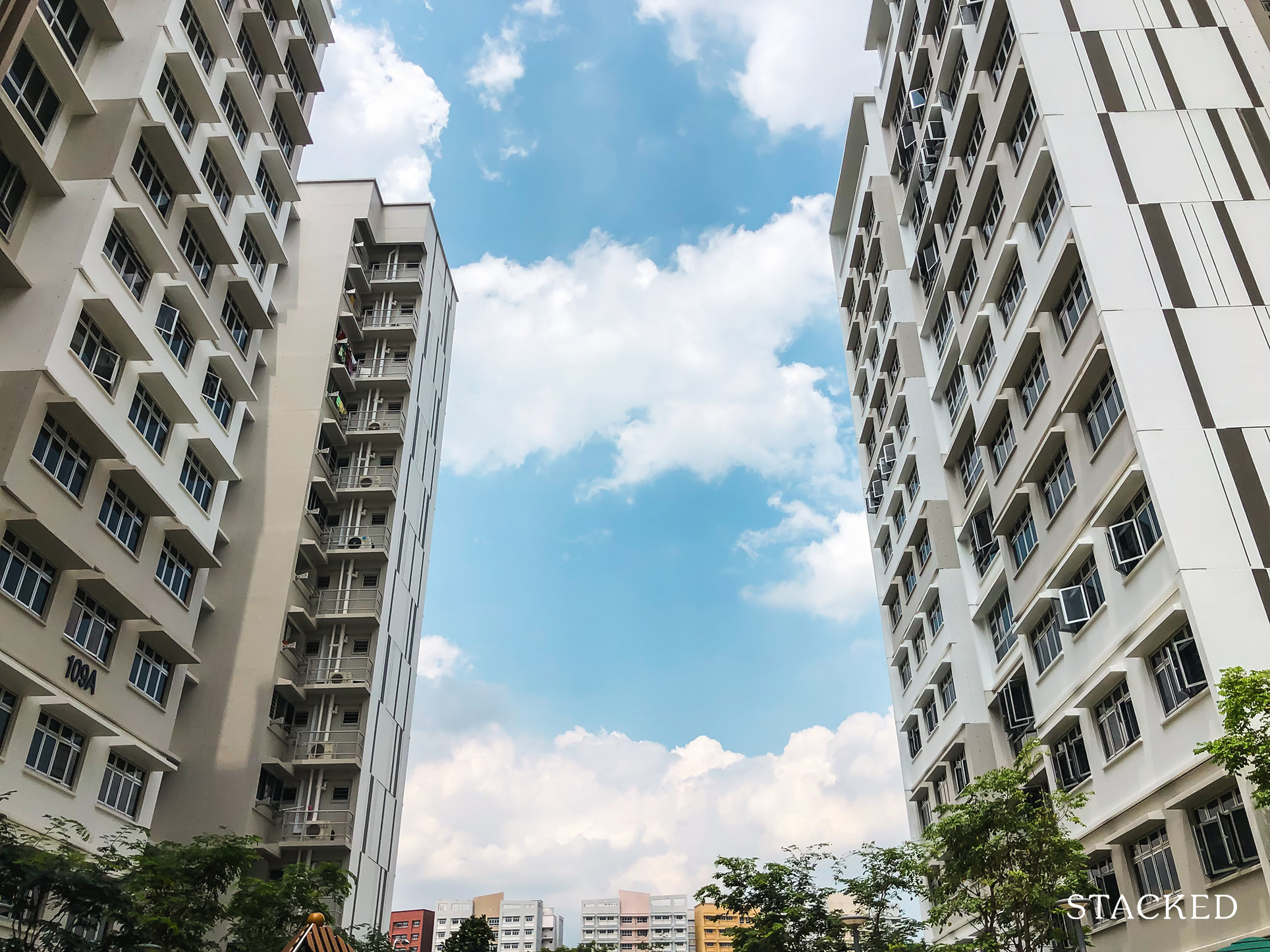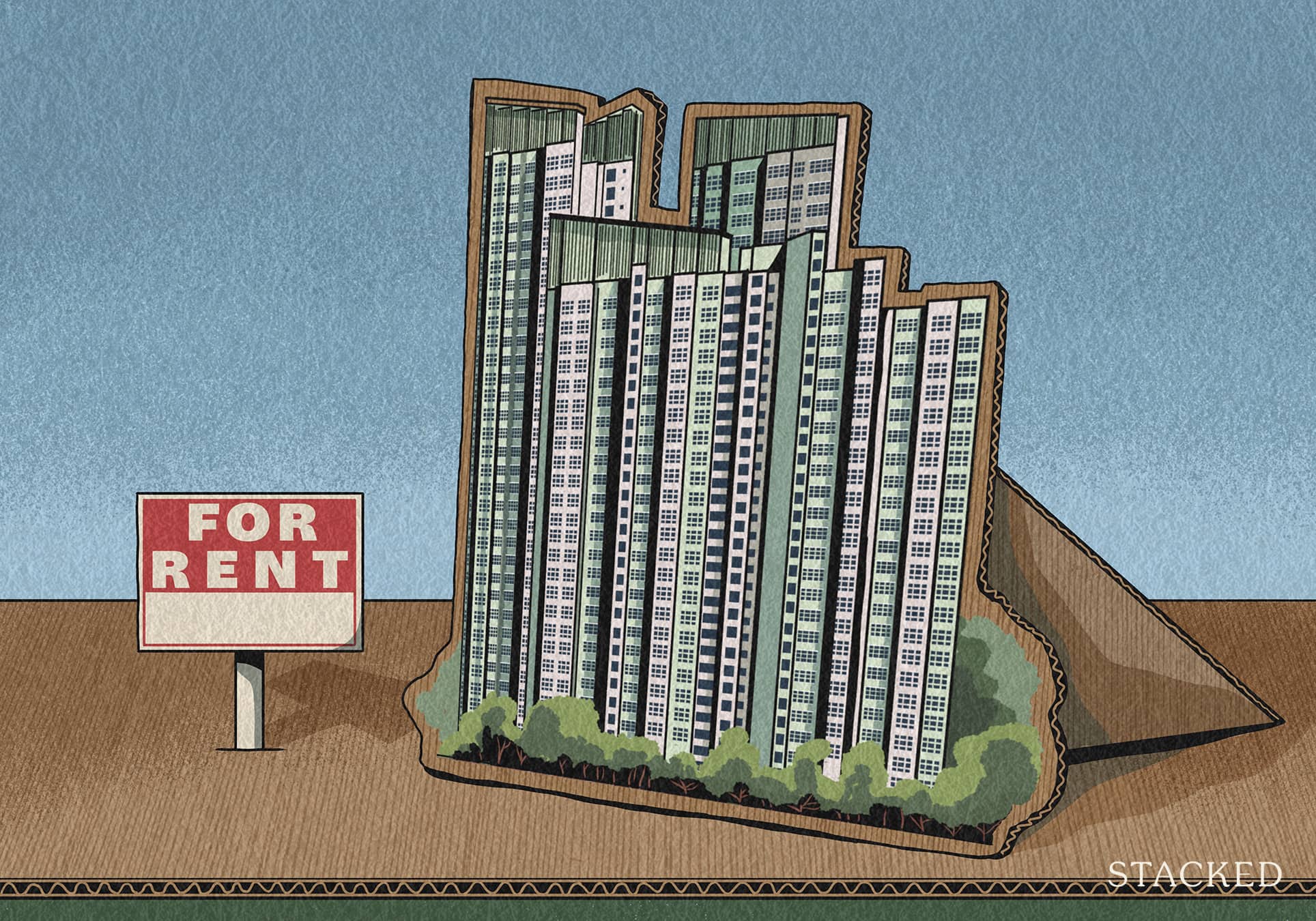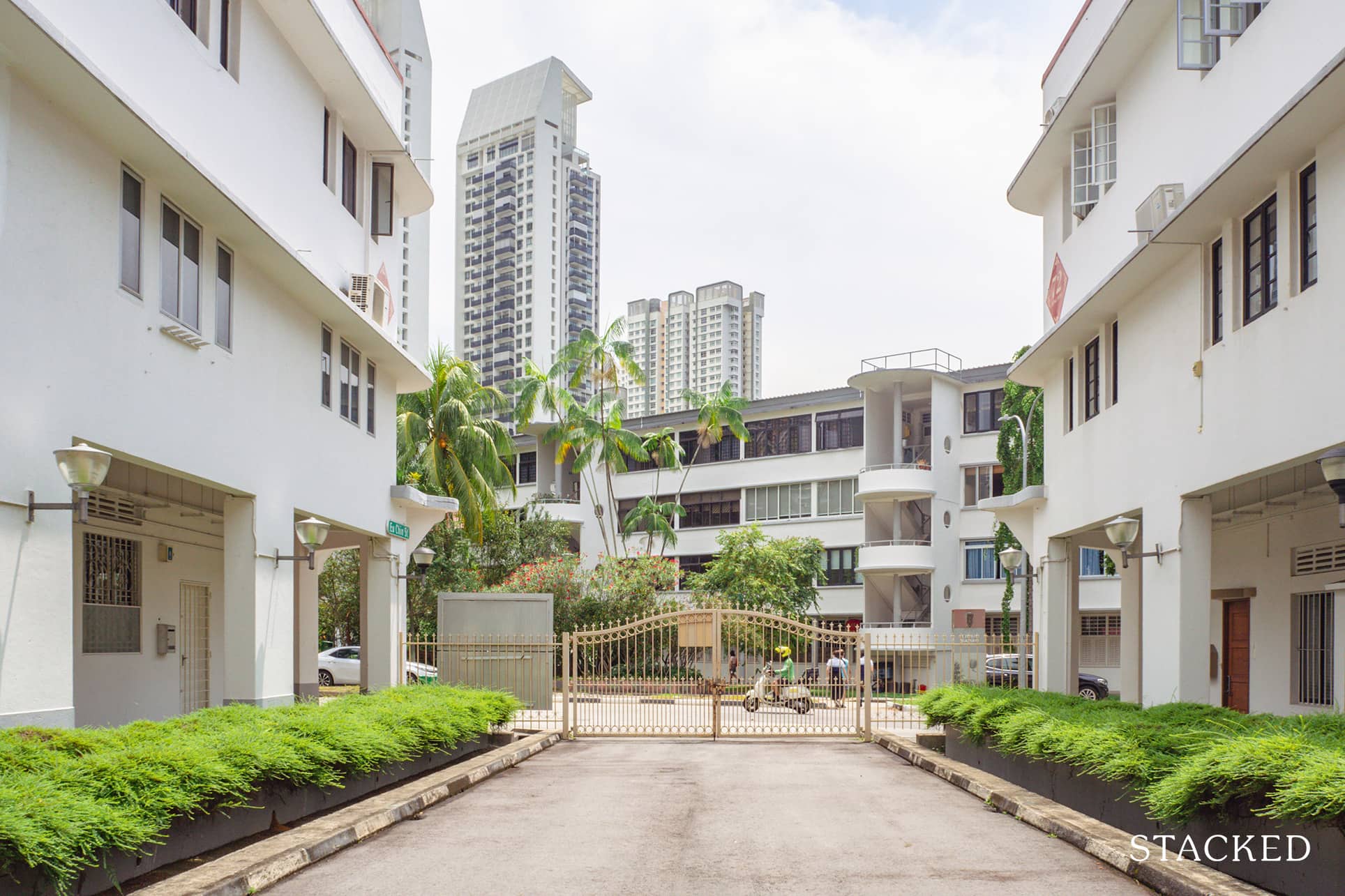Two decades ago, the answer to this question was almost always yes – it was the “default” move to rent out your flat, and use the rental income to cover the mortgage on a condo. In 2022 however, the question has become more complicated.
From ABSD to higher down payments, it’s no longer the best choice for everyone to keep both their flat and own a private property.
It’s also been a very popular question asked in our weekly advice series, even if just about 3 per cent of the HDB population owns at least one private property.
For those interested, here are some of them:
We Have $400k In Cash And Stay In A Condo While Renting Out Our HDB: What Options Are There To Avoid ABSD While Upgrading To A Larger Home?
My Ageing Parents Stay With Me And Rents Out Their 5-Room HDB: Should They Sell To Buy A Private Or Continue To Collect Rent?
We Make 300k Per Annum. Should We Pay ABSD For A 2nd Property For Investment When We Own A 5-Room HDB?
To sum up, here are the new considerations:
Can you even keep your flat when you own a private property?
The answer depends on citizenship, and the sequence in which you acquired the properties.
If you buy your HDB flat first, and at least one of the flat owners is a Singapore citizen, all you need to do is wait out the Minimum Occupancy Period (MOP) of five years (or 10 years for Prime Location Housing).

You can then purchase a private property while still retaining your flat.
If you purchase a private property first, however, you must first dispose of it before you can buy a flat*.
Also, if all the flat owners are Permanent Residents (PRs), they must dispose of the flat within six months of buying a private property.
*Keep in mind there are waiting times involved. You need to wait 30 months after selling a private property before you can ballot for a BTO flat. At present, you also need to wait 15 months before you can buy a resale flat, subject to your age and flat size.
Is it worth holding on to the flat?
These are the biggest factors to consider when making your decision:
- The ABSD rate
- Which property you’re living in
- The age of your flat
- Ability to cover down payment with recent loan curbs
- Issues beyond investment
1. The ABSD rate
If you retain your flat, you may have to pay the Additional Buyers Stamp Duty (ABSD). This is currently 17 per cent of your second property’s price or value, whichever is higher (for PRs, the rate is 25 per cent).
For some buyers, the question is how much rental income, the returns on the HDB when sold, will offset the higher stamp duty. For example: if you pay the ABSD of 17 per cent on a $1.6 million condo, this comes to $272,000.
Assuming a gross rental rate of $3,000 per month for your flat, it will be close to 7.5 years before the rental income covers just the ABSD; not a palatable proposition to many, despite high current rental rates.
Alternatively, you might consider the appreciation rate of your HDB flat. Assuming your current home is worth $500,000, you would need around 45.4 per cent appreciation in your flat price, to cover the ABSD by the time you resell. Reviewing transaction histories in your area can help to determine how realistic this is.
This must be measured against the potential returns of just upgrading to a single larger home, or even to two private properties. The right answer here will depend on your own expectations and the nature of the properties involved; if you reach out to us at Stacked, we have experts who can help to work out the safest course of action.
That said, ABSD rates are so high in 2022, most buyers will be better off not holding on to the flat. This is almost certainly true for PRs, who face a 25 per cent ABSD rate.
If you want to retain the flat, it’s best if only one spouse is the registered owner of the flat; this frees the other to purchase a second property without ABSD. This is why it’s important to plan early, which we’ve written a little bit more about here.
2. Which property you’re living in
You could carry on living in your flat while owning and renting out your private property. A typical example of this is an older Singaporean who has paid off their whole flat, and who now wants to purchase a small one or two-bedder unit for the rental income.

The financial issues are broadly similar to point 1: You need to ensure rental rates and eventual resale value are sufficient to justify the ABSD. Depending on the property in question, it may easier to meet this criterion than with your HDB flat (e.g., your private property may appreciate a lot quicker than your flat).
This approach can provide a good safety element: even if you ever need to sell the private property, there’s less discomfort as you just carry on living in your flat.
This is especially important since the last cooling measure in September 2022: those who sell their private homes may now need to wait up to 15 months to buy a resale flat, depending on their age and the flat size.
That said, don’t forget you will still need to pay the maintenance of the condo either way. If you do continue to stay in your flat and rent out the condo, the monthly maintenance is still paid by you and not your tenant.
3. The age of your flat
Flats tend to appreciate slower – or in some cases even depreciate – after the midpoint in their lease. When a property has 60 or fewer years on the lease, banks may decrease the maximum loan quantum available; and the higher cash outlay may dissuade future buyers. This will also eat into the returns of the flat, which you were hoping would cover the ABSD (see point 1).

The worst result outcome is to hold on to your flat, but sell it at little to no appreciation a decade from now due to lease decay – this would compound the cost of paying the ABSD.
Rental income, however, is less affected by this issue. Tenants don’t really care about your flat’s remaining lease, so long as the location is good and it’s well-maintained. So if all you want is to collect rental to the end, it could sometimes be worth keeping even an older flat.
4. Ability to cover cash down without selling your flat
You may have heard that you just need to save up to five per cent of the price to buy a private property. This can make keeping your flat seem much more viable.
After all, if you can make the five per cent down payment without selling your flat, you may as well keep it, right? In practice, however, the initial cash outlay can be much more than just five per cent*:
Under normal circumstances, the maximum Loan To Value (LTV) ratio for a bank loan is 75 per cent of the property price or value (whichever is lower). It’s true that only the first five per cent (first $80,000) is payable in cash, but the next 20 per cent must also be paid in any combination of cash or CPF.
So, for a $1.6 million home, this is $400,000 down, not $80,000 – and you need to make sure your CPF has enough to make up the remaining sum.
Also remember that the ABSD, for your second home, will be around $272,000. Can your CPF pay for 20 per cent of your condo, plus the stamp duties?
[[nid:514398]]
We need to also consider the Total Debt Servicing Ratio (TDSR), currently set at 55 per cent of the borrowers’ income. Since September 2022 cooling measures, TDSR is calculated with an interest rate floor of four per cent.
Assuming a loan of $1,200,000 for the above property, for 25 years at four per cent per annum, this is a repayment of $6,334 per month.
This means borrowers need a monthly income of at least around $11,516 to qualify for the maximum loan quantum. If your income falls below this amount, your initial down payment will have to be increased even further, until the monthly loan repayment falls within the TDSR framework.
You may find, after calculating these costs, that keeping your flat is much harder than just “saving up five per cent” for your next home.
*In our example, we assume you have paid off your flat loan before attempting to buy a second private property. If you haven’t yet paid off your flat loan, it is highly improbable that you can afford to both keep the flat and buy a private property – the LTV for your private property will only be 45 per cent, and the minimum cash component rises to 10 per cent.
In addition, few Singaporeans can meet the TDSR limitations of having two home loans.
5. Issues beyond the investment
If you’re pooling cash with your children to buy a private property and moving in with them, it might be a good idea to retain your HDB flat. This ensures you can move back into your own home, in the event things don’t work out. Here are two sample scenarios:
Scenario 1:
An elderly couple sells their flat and gives the entire sale proceeds to their children. They then move into a big condo with the children. Within a few years, they find living together to be too uncomfortable.
The couple is stuck, as they probably don’t have the funds to buy their own home again – not unless their children agree to sell and split the cash amicably. There’s a lot of potential for infighting here.
Scenario 2:
An elderly couple retains their flat but gives what they can afford to their children to purchase a larger condo. They then move in with the children, while renting out their flat.
Not only do they receive rental income, but they can also move back into their flat if arrangements don’t work out.
(In both above scenarios, we assume the children are registered as the owners of the condo but not the parents – so no ABSD is involved).
Some other reasons for retaining your flat could involve wanting passive rental income, with no concern for future resale value. For example, you might aim to collect rental income from the flat to help your retirement, with no plans to sell it – if so, you may not care about resale gains, making up the cost of the ABSD, etc., not if you’re just happy having a reliable income stream for your twilight years.
As everyone’s scenario is different, do reach out to us if you need specific help. Don’t make the mistake of giving up your flat when you shouldn’t (it’s hard to get back), or of paying unnecessary ABSD rates.
This article was first published in Stackedhomes.
Bagikan Berita Ini














0 Response to "Should I still keep my HDB flat if I'm buying a private property? Here are 5 factors to consider - AsiaOne"
Post a Comment